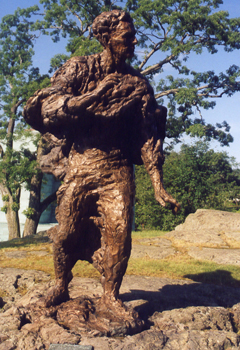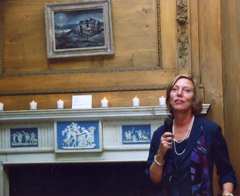
 |
 |

| Tuesday, October 29, 2024 |
Miles from the Mainstream |
D.
R. ZUKERMAN, proprietor |
Insensitivity at Brandeis University
DECEMBER 28, 2007 -- At the end of October, Brandeis University politics Professor Donald Hindley received a letter from University Provost Marty Krauss telling him that an assistant provost would attend his classes as monitor, that he must undergo anti-discrimination training, and that he faces termination if he did not comply. The story leading to the Krauss letter to Professor Hindley is obscured, at present, by claims of confidentiality raised by the school administration. Apparently, during a class on Latin America, in September, Prof. Hindley mentioned the term "wetback." (Perhaps other terms stated on that or another occasion were also complained of by one or more students. According to reports, most students in the Latin American class supported Professor Hindley.) This matter has drawn comment on several websites. It has also been reported in university and student publications at Brandeis. It has not been reported in the local or national press. At this point, it is not clear to LPR if the university's procedures in cases alleging improper classroom speech provide for imposition of a human monitor in class, plus anti-discrimination training -- and threat of dismissal, or if the penalties were applied in ad hoc way in any way. A faculty committee has determined that the penalties applied against Professor Hindley are "excessive." The committee seemed, also, to indicate that apposite procedures were not followed by the administration -- with respect to consulting with the faculty in a matter that could lead to termination, and suspending the penalties while the matter was appealed to the Faculty Senate. The campus newspaper, "The Justice" reported that Provost Krauss acknowledged there had been a procedural "'hiccup,'" which she explained, according to the Justice story, as necessary because Professor Hindley might have been in violation of state or federal law. Sensitivity training might be called for at Brandeis, with some monitoring by administration officials indeed: in the course on Constitutional Law. It seems to LPR that to speak of a "hiccup" in procedure is merely another way of saying "sheer denial of due process." |
For more on this story, please google: "Professor Donald Hindley Brandeis monitor controversy"; also go to the website www.erinoconnor.org, who offers keen observations and other sources on the Hindley matter at her "Critical Masses" website; and www.shermandorn.com, among other websites.
|
|



